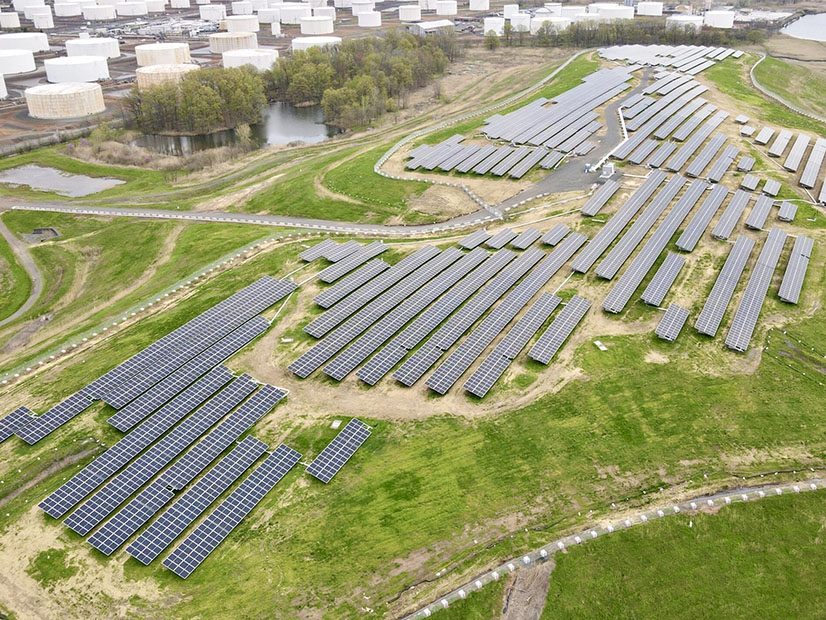
The New Jersey Board of Public Utilities (BPU) will launch a permanent community solar program next year, targeting installations of up to 150 MW a year, the agency said last week in response to solar developers’ concerns over the lack of clarity about the program’s future and when the winning bidders for its existing pilot program would be announced.
BPU President Joseph L. Fiordaliso revealed the plan for a permanent community solar program at a board meeting last week at which he also said he expects to announce the successful applicants to the second year of the pilot program in October or November. Fiordaliso ruled out the need for a third phase of the pilot program, saying the agency had learned enough in the first two phases to help shape the future program.
“We will be moving ahead with the rapid development of a permanent program,” he said during the BPU’s meeting Wednesday. “We will be developing the permanent program with the goal of ensuring that new community solar applications are able to be submitted as quickly as possible.”
The annual addition of 150 MW of community solar capacity will follow the 150 MW for which the BPU expects to announce the successful applicants soon in the second phase of the pilot program. The BPU awarded 78 MW in the first phase, and the first of the 45 approved applications began operating in January.
The community solar program is one of several that the state hopes will help it reach Gov. Phil Murphy’s goal of 100% clean energy by 2050. Murphy wants to deploy 32 GW of solar by 2025, about nine times the current amount, and in July he signed a bill designed to boost the state’s grid-scale capacity. (See NJ Grid-scale Solar Bill Signed by Murphy.)
Annika Colston, president of AC Power, which submitted nine applications to the second phase of the program, said the announcement of a permanent program is “excellent.”
“We all know there’s incredible demand for the program,” she said, applauding the BPU for listening to the concerns of the solar sector.
Solar Developer Frustration
Colston and other solar developers, as well as representatives of the Coalition for Community Solar Access (CCSA) and Solar Energy Industries Association, two national advocacy groups, told the BPU in public hearing Sept. 28 that the board’s failure to announce the winners to the second program was putting submitted projects in jeopardy. (See Slow Progress of NJ Community Solar Pilot Draws Fire.)
The deadline for applications in the second phase closed Feb. 5, and the BPU said in May that it had received 410 applications, a figure that has since been increased to 412, totaling more than 800 MW. But the board had not until last week offered concrete details about when it would identify the successful bidders in the second phase, leaving developers nervous at the fate of some submitted projects.
Solar representatives said that developers that lined up rooftops and signed contracts to apply for the program were struggling to keep their partners on board, with little information from the BPU to calm concerns. That was compounded by the fact that BPU had at that point said nothing about whether the second phase would be succeeded by a third, a new permanent community solar program or something else, the representatives said.
Colston said she hopes that the BPU at some point outlines its rationale for opting to offer 150 MW each year in the permanent program instead of a larger annual award, given that the solicitations in the second phase totaled five times that amount.
Leslie Elder, CCSA’s Mid-Atlantic director, welcomed the announcement that the winning solicitations for second-phase projects are imminent and noted that the BPU is also allocating a total of 1,125 MW in community solar capacity through 2026.
“We are excited to work with BPU staff to build a permanent program,” she said. The goal is to create a program “that delivers more solar energy to overburdened communities, provides economic benefits to local jurisdictions, creates jobs, and ensures all state residents have access to clean and renewable energy to lower their energy costs,” she said.
Designing the Program
Scott Elias, senior manager of state affairs for SEIA’s Mid-Atlantic region, said the organization is looking forward to working out the kinks in the new program and potentially increasing the available capacity.
“There are issues that need to be worked out in the design of the permanent program,” he said. These range from “consolidated billing, evaluating whether the current rules for [low- and moderate-income] verification are working and appropriate, and shifting to a first-serve, first-come model instead of maintaining the current annual solicitation utilized for the pilot program.”
Community solar projects are targeted at consumers — whether homeowners or small businesses — who either cannot or do not want to have solar on their roofs. A developer builds that project, often on a roof, in a parking lot or on a landfill, and enrolls subscribers who receive a credit on their utility bill, reducing the electricity cost by a set percentage. The solar project operator then supplies the electricity generated in the project to a utility company, which provides power to the consumer in the same way the utility did before opting into community solar.
“Clean energy equity is the cornerstone of community solar in New Jersey,” said Shaun Keegan, CEO of Asbury Park-based Solar Landscape, which developed the first two community solar projects in New Jersey and has submitted others for the second phase of the program. “This program is leading the nation by including all New Jersey residents in the fight against climate change, regardless of their income or ability to install their own solar panels.”


